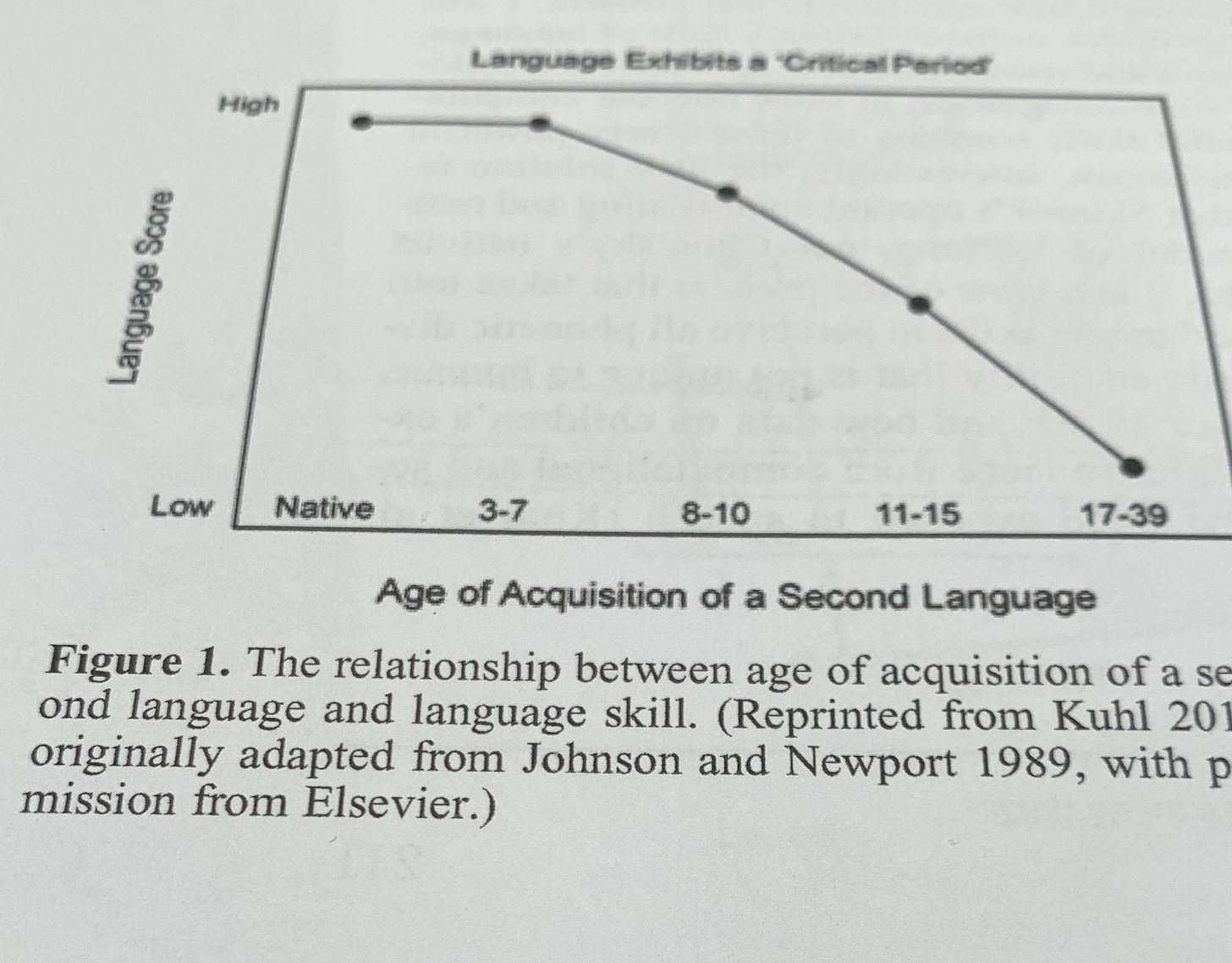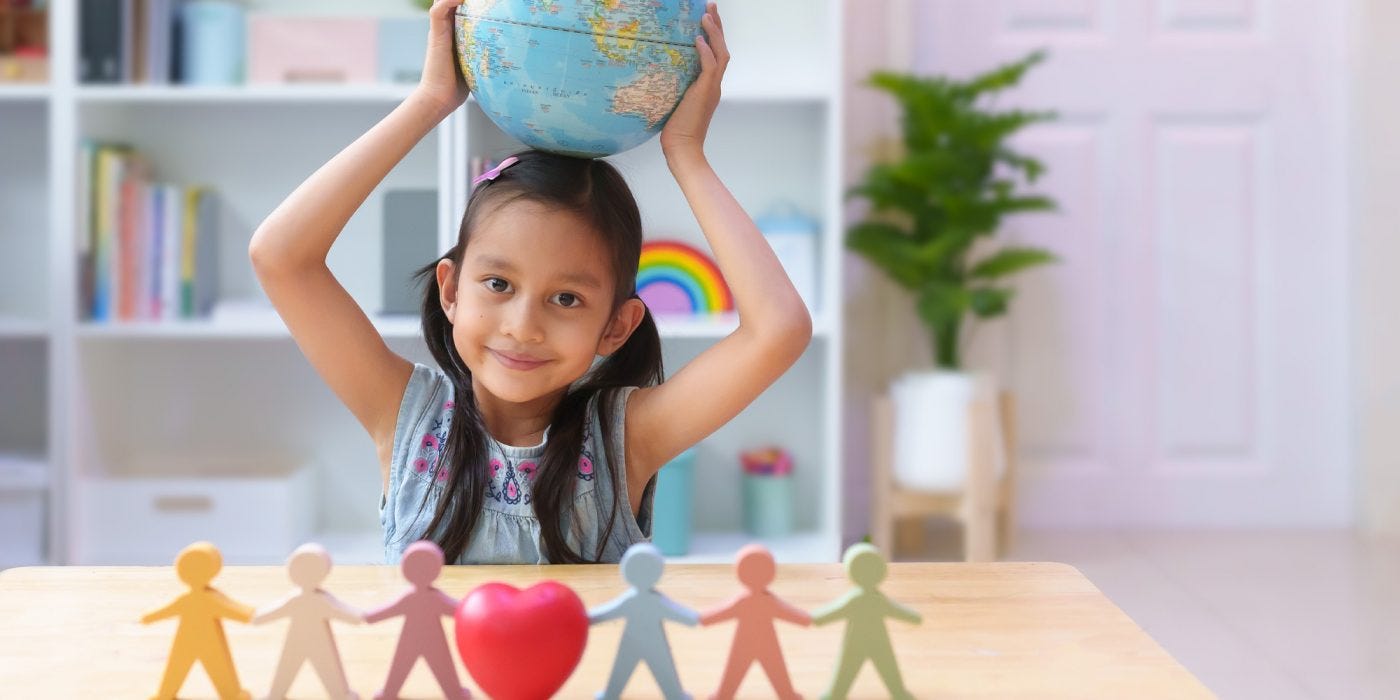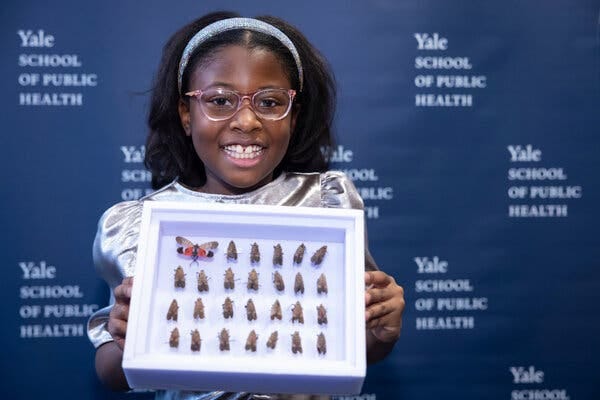Small Talks, No. 93
February 3, 2023
Welcome to the ninety third edition of Small Talks. Every Friday, I highlight 6 areas of weekly joys and reflections in early childhood and the whole family. Small Talks leverages my experience at the intersection of education, philanthropy, and impact investing. Enjoy!
What I’m celebrating -
This week is dedicated to dual language learning and dual language learners. Did you know that:
33% of all U.S. children under the age of 9 are dual language learners.
More than half of the world speaks more than one language on a daily basis.
In the U.S., by 2025, an estimated 25% of public school students will be English Language Learners- one of the fastest growing group of learners.
Bilingualism has benefits on the brain, specifically executive functions. Bilingualism also protects against cognitive decline with aging and delays the onset of Alzheimer’s disease. It has many other benefits including creativity, tolerance, and dealing with ambiguity.
What is the maximum number of languages a child can learn? Well, there is no real consensus. A small group of hyper-polyglots can speak 50+ languages. For example, Emil Krebs, a German diplomat, spoke 65 languages. More here.
After age 7, the ability of a child to be fluent in any new language declines meaningfully. See below illustrative graph. After age 7, researchers looked at multiple age groups 8+, 12+ and adulthood for foreign language acquisition, and concluded that 12+ may be better.
Despite all those benefits and the large and growing numbers of dual language learners in the U.S., our education systems are not adequately built for multilingualism, and being an English learner is often perceived as a deficit. There are approximately 5 million English Language Learners in public schools, but less than 80,000 teachers dedicated to addressing their needs (1:60 ratio).
Don’t miss Bilingualism Is a Resource, Not a Disability, a great piece by Mark Swartz for Early Learning Nation, featuring non-profit innovator AVANCE . More about AVANCE model in this short video overview about their 2-generation model.
A personal note: My mom does not speak English. My dad has translated in English every single installment of the 92 Small Talks past issues to my mom. Love you, Mom & Dad.
What I’m listening to -
This Hidden Brain podcast “watch your mouth” features Lera Boroditsky, a cognitive science professor at the University of California, San Diego, who makes the case that linguistic aspects such as grammatical gender and reading direction can have a real effect on the way we think. She also points to studies that show language can shape how people think about time, agency, and gender.
"Language can guide you to discover something about the world that might take you longer to discover if you didn't have that information in language," she says.
— Lera Boroditsky
What I’m reading
Ellen Bialystok at York University has published several seminal books on the topic of bilingualism…Bilingual Children: Families, Education and Development is a recent paper back version of her scholar contributions.
There are many resources for bilingual books for children. This site has a nice list for Spanish-English books. What are your favorites? Please share.
What I’m watching -
I watched many times this TEDTalk “The linguistic genius of babies” by Pat Kuhl, Professor of Speech and Hearing Sciences at the University of Washington, a small contribution to the millions of views it has received.
This TEDTalk by educator Mia Nacamulli summarizes three key benefits of a bilingual brain.
What I’m learning more deeply -
A thought provoking piece - Raising a multilingual family is hard – what makes it work? by Olga Mecking.
An important policy angle - Expanding access to bilingual learning: For dual language and English learners what we know, what we don’t know, and what we should do about it by the Children’s Equity Project.
Interesting practical report - Discussing Early Dual Language Development with Speech/Language Therapists by UnidosUS.
This week’s inspiration (New York Times)- “Someone called the police on a girl catching lanternflied. Then Yale honored her”.
A quote I’m pondering -
“Learning another language is not only learning different words for the same things, but learning another way to think about things.”
-– Flora Lewis
Feedback is a gift. Which part above is your favorite? What did I miss? What do you want more or less of? Other recommendations? Please kindly let me know. Thank to all of you who are sending me amazing suggestions.
If you enjoy this newsletter, please help spread the word by sharing with your friends, colleagues, and networks.
Have a wonderful week. Please stay safe and care for each other.
Isabelle





